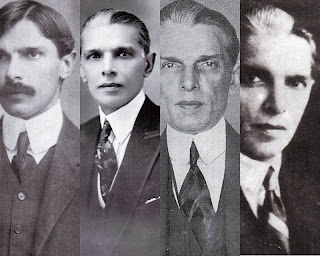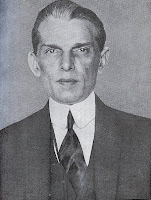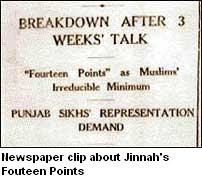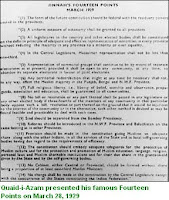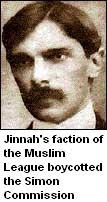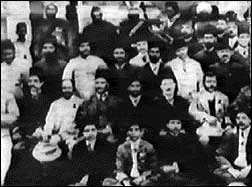The government of India Act of 1919 fell short of the expectations of the Indian political parties. It introduced diarchy in the provinces, which meant subjects were to be divided into reserved and transferred. The reserved were to be administered by nominated Ministers and then transferred by the elected ones. While at the center, the British Governor General remained sole authority. The people could not accept this after the imposition of unsatisfactory Rowlatt Act and the atrocities inflicted on the people of Punjab. The Muslims were also perturbed over the unfair treatment given to Turkey by the victorious allied powers. During the war, the Muslims had shown concern about the developments in Turkey and the institution of the Khilafat.

Lloyd George,the British Prime Minister to pacify the Muslims all over the world, had assured the world that the Allies had no intention to dismember Turkey and after the war Turkish possessions would be made over to Turkey. He said, “nor are we fighting to deprive Turkey of the rich lands of Asia Minor and Thrace, which are predominantly Turkish in race.” But the promise was not honored. The Jazirat-ul-Arab which includes Mesopotamia, Arabia, Syria and Palestine was being divided among allies in the form of a Mandate. This development raised a war of indignation among the Indian Muslims due to sanctity and respect associated with these lands. They demanded that the pledges given to them during the war should be honored. This demand gave rise to what is generally known as the Khilafat Movement. This cause was initially taken up by Jamiat-i-Ulema-i-Hind founded by Maulana Mohammad Ahmed Malani. Maulana Mohammad Ali and Maulana Shaukat Ali also joined it.
Gandhi linked the issue of Swaraj with the Khilafat Movement
The Muslim League met in Calcutta under Jinnah. At this meeting Jinnah said:
“First came the Rowlatt Bill — accompanied by the Punjab atrocities — and then came the spoliation of the Ottoman Empire and the Khilafat. One attacks our liberty and the other our faith…”
In November 1919, a joint conference of the Muslims and Hindus was called at Delhi in pursuance of the Muslim League President Fazl-ul-Haq in which he said, “ we should renounce any lurking spirit of strife and quarrel with other communities and seek their help and assistance in our troubles and difficulties. The question of cow protection was also raised in order to create goodwill between the Muslims and the Hindus. Ghandi suggested to start the non –cooperation movement which was opposed by Jinnah.
In December 1919, the Khilafat Conference held its second session in Amritsar where the Muslim League and the Congress also held their annual sessions. But the tensions raised could not be settled and Jinnah could no longer play a leading role in the Khilafat movement and it passed into the hands of Ali brothers, Dr. Kitchlew and the militant segment of the Ulema. Under that leadership it began to over power the Muslim League. Jinnah took a back seat to all this and did not join the Indian leaders who met the Viceroy on January 19, 1920 to plead for a settlement with Turkey.
The third Khilafat Conference was held in February 1920 at Bombay which passed the resolution for non- cooperation and the Calcutta Provincial Conference decided to “cease all relations of loyalties” with the British and to assist the Caliph in all possible ways to keep his dominion was not kept in tact as it was before the war. Jinnah and other fellow moderates did not participate in this Khilafat agitation. In a letter to Ghandi, Jinnah said that the movement was bound to lead to disaster. He said that this kind of a plan has appealed only to the illiterate and the inexperienced youth of the country. He said that though he had no power to remove the cause, he wished to advise his countrymen against the dire consequences of such an extreme act.

Thus Jinnah opposed Gandhi’s plan of starting a mass non-violent, non-cooperation movement all over the country. Gandhi became the head of the Khilafat movement and declared that the Indians would boycott all British goods, courts, institutions, elections etc. He urged that such large scale protest movement would force the British to grant India self rule. He had envisaged four progressive stages of the movement. First the resignation of titles and offices. Second, with drawl from all government services except police and military. Third, with-drawl from police and military, and fourth, suspension of payment of taxes to the State. The Quaid on the other hand, felt that the Indians should fight Imperialism constitutionally instead. The Nagpur session, which was thirty-fifth Congress, was held in December 1920. Gandhi’s non-cooperation movement had been approved at a special session at Amritsar and during the Nagpur session, Jinnah was the only person who had the courage to openly oppose the resolution proposed by Gandhi, despite strong opposition by the crowd. The Quaid said:
“… the weapon will not destroy the British empire… it is neither logical nor is it politically sound or wise, nor practically capable of being put in execution.”
Colonel Wedgood, who heard Jinnah’s speech was very impressed and commented:
“I do not know enough about Mr. Jinnah’s politics to say whether I agree with him or not, but I do know that a man who has the courage to come to this audience and tell what he has told you is a man of my money. The first thing in every political leader is not brains, but courage.”
Jinnah stayed aloof from Gandhi’s non-cooperation movement along with some other leaders. The start of the movement followed the arrests of leaders and activists associated with it. Problems began emerging when the movement, though remained one of non-cooperation was no more one of non-violence. The Ali brothers were very persistent in their support of the Khilafat movement. Riots started broke out all over the country and encounters with the police became a common occurrence. This was something leaders like the Quaid had predicted.
The Prince of Wales was to arrive in India, and the call to boycott his welcome went forth. On his arrival in Bombay violent outbreaks started in the city and several innocent people lost their lives. Coincidentally, Gandhi was present in Bombay at time and witnessed the horrific situation, which was an outcome of his non-cooperation movement. He commented:
“Swaraj stinks in my nostrils.”
The Khilafat movement intensified when Maulana Abdul Bari called on the Muslims to migrate from India. Many young Muslims migrated to Afghanistan where they were looted and ruined.
Another unpleasant resultant of the Khilafat movement were Moplah riots of 1921. In Malabar, the Moplah Muslim peasants and farmers rose against the Hindu landlords. That development created a rift between the Muslims and the Hindus.
The non-cooperation movement was called off after the Chauri Chaura tragedy in which twenty-two policemen were burnt alive by a mob on February 5th 1922. The Congress negotiated with the government, Pandit Malaviya acting as the mediator. The government agreed to let off the civil disobedience prisoners, if the Congress called off the boycott. Also, a Round Table conference was to be arranged on March 22nd between the government and the Congress.
On the other hand the developments in Turkey were very disappointing for the Indian Muslims as the in itself was abolished. The Muslim League was reduced to an accessory of the Congress and did not meet as a self-sufficient body till 1924.
Jinnah learnt a lot from the Khilafat movement. It disillusioned him with the Congress and the British rulers and strengthened his faith to work for the intrests of the Muslims. He worked hard to bring the Muslims out of their demoralized state of mind and reorganize them under the banner of the Muslim League.
















